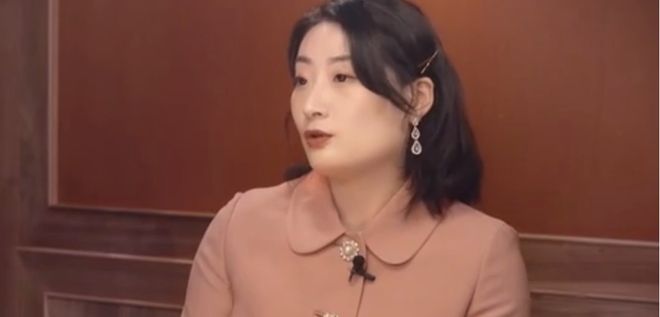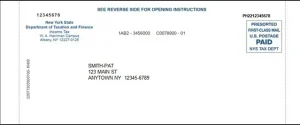Zong Qinghou’s illegitimate son sues Zong Fuli! Is Wahaha about to change?

Source: Three Minutes of Finance
Zong Qinghou would never have thought that the beverage empire he built with his own hands would eventually fall into a succession storm.
Zong Fuli, who had just presided over a strategic meeting as chairman, received a court summons. Three young people who claimed to be “Zong Qinghou’s children” sued the “only heir” in court.
This lawsuit suddenly put Wahaha, with an annual revenue of 70 billion yuan, at a crossroads of fate.
There are no fairy tales in the business world, only foreshadowings that are not written into the contract. The plaintiff’s lawyer claimed that “half of the country must be taken back”, and Zong Fuli hit back strongly: “My father’s last wish is written in black and white.”
Family affection collides with equity, ethics versus business law, and the contradictions covered by the founder’s halo finally erupt at the time of power transfer.
01
Inheritance dispute arises
Wahaha family feud surfaces
From the beginning of his business in 1987, Zong Qinghou started with a loan of 140,000 yuan, and overcame all difficulties to develop Wahaha into one of the world’s leading food and beverage manufacturers, ranking among the top 500 Chinese companies and the top 500 Chinese private enterprises.
However, life is unpredictable. On February 25, 2024, Zong Qinghou died of illness at the age of 79. His departure cast a shadow on the future of Wahaha.
Zong Fuli, as Zong Qinghou’s “only daughter”, eventually became the successor of Wahaha Group.
In July 2025, a sudden inheritance dispute plunged Zong Fuli into a whirlpool of public opinion. According to the Global Times and other media reports, Zong Fuli was sued in Hong Kong for an asset dispute. The three plaintiffs, Jacky Zong, Jessie Zong and Jerry Zong, were confirmed by their lawyers as Zong Fuli’s “half brothers and sisters”.
In the public’s past impression, Zong Qinghou’s family relationship was simple, with his wife Shi Youzhen and his only daughter Zong Fuli. Now the appearance of these three “half brothers and sisters” has undoubtedly broken people’s cognition.
The plaintiffs claimed that Zong Qinghou had instructed his subordinates to set up a trust through HSBC Hong Kong. As of the beginning of 2024, the balance of the HSBC account was about US$1.8 billion. The documents showed that as of May last year, US$1.1 million had been transferred out of the account.
They sought a court injunction to freeze the HSBC account, requiring Zong Fuli to execute her father’s will, pay millions of dollars in interest on assets, and compensate them for the losses incurred by transferring funds.
The plaintiffs also pursued the US$2.1 billion offshore trust rights promised by Zong Qinghou during his lifetime, with each person expecting to receive US$700 million.
They claimed that Zong Qinghou had instructed his subordinates to set up a trust through HSBC Hong Kong as early as 2003, and the funds came from the injection of Wahaha dividends.
In the lawsuit in Hangzhou, their demands were equally firm. They demanded to inherit Zong Qinghou’s 29.4% stake in Wahaha Group, which is worth more than 20 billion yuan based on the current market value.
The basis for this claim is Article 1071 of the Civil Code, which clearly stipulates that illegitimate children enjoy the same rights as legitimate children.
They believe that as Zong Qinghou’s illegitimate children, they should enjoy equal inheritance rights with Zong Fuli before the law and have the right to inherit their father’s shares in Wahaha Group.
To support their claims, the plaintiffs provided a series of evidence. They submitted trust documents to try to prove the fact that Zong Qinghou set up a trust; provided recorded commitments to show Zong Qinghou’s commitment to their rights and interests; and assistant testimony to confirm the relevant situation from the side.
They also applied for Zong Jichang’s 1989 birth certificate and Zong Qinghou’s blood sample identification application, hoping to confirm the parent-child relationship through DNA identification and provide stronger evidence support for their claims.
02
Zong Fuli responded strongly! The inheritance battle officially started
Faced with the claims of the three plaintiffs, Zong Fuli’s legal team responded firmly and did not back down.
Zong Fuli’s legal team first questioned the authenticity and legality of the plaintiff’s evidence. They questioned the authenticity of the trust documents, believing that these documents may have flaws and could not conclusively prove Zong Qinghou’s intention and specific arrangements to establish the trust.
Zong Fuli’s legal team emphasized that the will signed by Zong Qinghou in 2020 is legally effective. This will clearly states that “overseas assets are inherited by the only daughter, and other children have no rights”, which is an important basis for Zong Fuli to inherit her father’s overseas assets.
The witnesses of the will are Wahaha executives. Although no family members signed, there are no obvious flaws in the legal procedures. Zong Fuli’s legal team believes that the will is an expression of Zong Qinghou’s true wishes and should be respected and executed.
Regarding the equity issue, Zong Fuli’s legal team said that Zong Qinghou had completed asset isolation through family trusts, offshore companies and other tools during his lifetime, and the Wahaha shares he directly held were all registered under the name of his mother Shi Youzhen. This means that the three plaintiffs’ claims to inherit the Wahaha Group’s equity lack legal basis.
The battle for the inheritance has not yet been concluded, but it is certain that once the three plaintiffs get the inheritance, the Wahaha Group will face a huge impact, and its equity structure, corporate governance and future development strategy will be far-reaching.
From the perspective of the equity structure, if the three illegitimate children successfully inherit the equity, Wahaha’s equity structure will change from “state-owned assets-employees-Zong Fuli” to a complex situation of “state-owned assets-employees-multiple children”.
This change may lead to the dispersion of equity and make the company’s control unstable. There may be differences in the interests of different shareholders, which will increase the difficulty of the company’s decision-making and affect the company’s operating efficiency.
03
Zong Fuli’s Road to Reform
Going forward under heavy pressure
After officially taking over as the chairman of the group in 2024, Zong Fuli’s reforms were more radical than expected by the outside world: cutting off a large number of SKUs with poor sales performance and introducing a digital supply chain management system.
These measures, known internally as the “New Live Water Plan”, are reshaping the genes of this old-fashioned company, but they have also touched the interests of many veterans.
This iron-fisted style has won the support of young employees, but it has also made those veterans who followed Zong Qinghou to conquer the world dissatisfied.
Employees’ evaluation of her is sharply polarized: some admire her for “daring to change the rules left by her father”, such as changing the “dealer pressure system” that has been used for 20 years to on-demand production; others complain that she is “too superstitious about Western management models”, such as the mandatory OKR assessment system, which makes old employees who are used to “patting their chests to guarantee” at a loss.
But it is undeniable that the reform has begun to bear fruit – Wahaha’s performance in 2024 successfully matched the performance scale of ten years ago.
However, this sudden inheritance lawsuit has made the already difficult road of reform even more difficult. External challenges have long been eyeing: Nongfu Spring’s share of the drinking water market has exceeded Wahaha by 12 percentage points, new brands such as Yuanqi Forest continue to erode the young consumer group, and even Daliyuan, which has been deeply cultivating the sinking market, is imitating Wahaha’s channel model.
At this juncture, internal equity turmoil may become the last straw that breaks the camel’s back.
This inheritance dispute has torn apart not only the privacy of a wealthy family, but also the general dilemma of intergenerational inheritance of Chinese family businesses: when family affection collides with legal principles, when traditional governance and modern rules confront each other, when the battle to defend control meets the battle to tackle reform, the heirs are destined to take thrilling steps on the balance beam.
Zong Fuli’s challenge is that she must prove that she is the legal heir of her father’s will, and she must prove that she is a qualified helmsman of Wahaha’s future.
The former requires legal judgment, and the latter requires market recognition.
Those “brothers and sisters” scattered overseas may never have thought about truly managing this Chinese company, but their presence has become a touchstone for testing the quality of Wahaha’s reform.
If Zong Fuli can keep her footing in this storm and push the company to complete its transformation to digitalization and youth, then this lawsuit will be nothing more than an episode in the history of the empire; on the contrary, if the reform stagnates due to internal friction, no matter how many legal victories there are, they will not be able to bring back the lost development opportunities.
![]()







